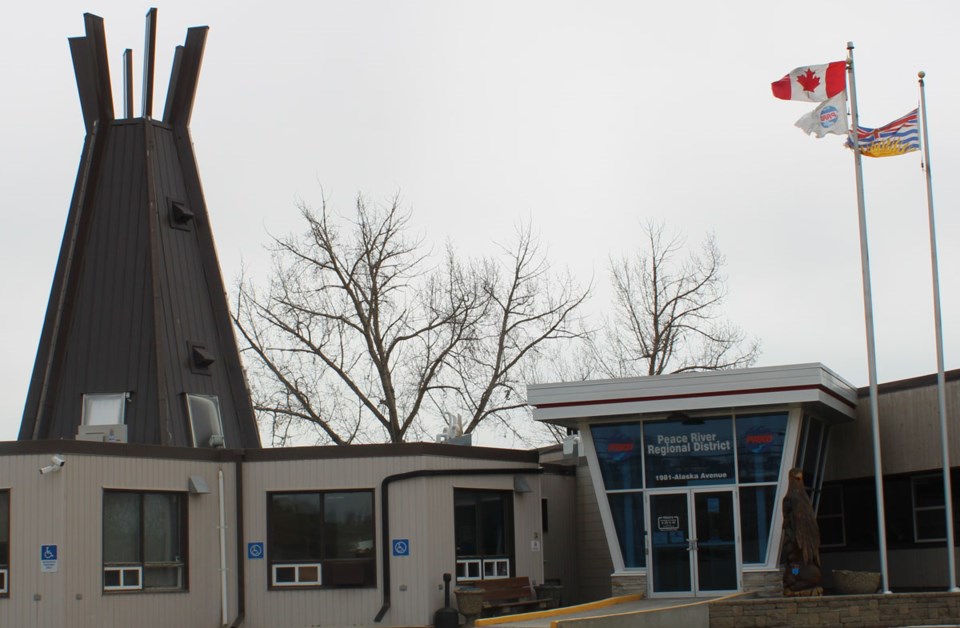Peace River Regional District directors say they’re increasingly uncomfortable with requirements set out in the Emergency Disaster and Management Act and say the revised legislation is simply more downloading to municipalities from the province.
A report summarizing the impacts of the act on the PRRD was received during their Jan. 25 meeting, prompting critiques from the board.
The act has redefined emergencies to include terrorism, rioting, and security threats. Complying with the act will require additional staff resources and new hires, an expense the PRRD has no real choice in.
Electoral Area B Director Jordan Kealy said they're being pushed into acting like CSIS, RCMP, or other police-like authorities, a role he didn’t ask for, and expects will create extreme friction with residents if the PRRD attempts to take that on, in addition to creating further tax burden for constituents.
“I disagree with the way they’re doing this act completely,” he said. “I didn’t really see much wrong with our previous act. We expressed concerns over the fires that we experienced last year and the recommendations that we had for support, we didn’t even get those.”
“They’re calling us, instead of local governments, local authority, and now myself as an elected official, if I don’t do exactly what they say, I face up to a million dollar fine, imprisonment. How the hell does that work?”
The act also goes too far on infringing people’s rights and reasonable judgment during emergencies, Kealy added, noting that residents banded together during the Boundary Lake wildfire, preventing its spread into the Doig River area.
“It is not, I repeat, not going to go well if you try to force people off their properties,” Kealy said.
PRRD Chair Brad Sperling said he sat for three years on an emergency act committee, but has seen nothing in the new legislation that reflects their input.
"I see nothing in this legislation that committee put forward to the province, nothing," he said.
Electoral Area D Director Leonard Hiebert said there needs to be public outreach from the provincial government before the PRRD should comply with the new legislation.
“We’re going to eat this one from the public because they haven’t done any public outreach, and so it’ll fall back on us again, and we’ll be getting slapped around because of their requirements,” said Hiebert. “And I think I’m not in favour of pushing forward if that doesn’t happen.”
Fort St. John Mayor Lillia Hansen said while she respects what fellow board members are saying, they have a legal obligation to comply.
"I think it's important that we bring our voices forward, I think we can do it in parallel. If there's a deadline or dates that we have to have things done, and we need the work started, I don't want there to be a pressure on staff or finding staff to accomplish this," she said. "And there's times where there's things we don't agree with what the province is asking and we can still fight back on it, but there is still work that needs to be done."
Pouce Coupe Mayor Danielle Veach said the PRRD board has become increasingly uncomfortable with complying to the act as more reports are received about it.
“There’s almost just a point where I'm not even comfortable receiving a report anymore, because at this point in time, there’s too many questions, too many concerns, and this shouldn’t be downloaded onto us,” she said.
Hudson's Hope Mayor Travous Quibell said it's in the best interests of the board to keep collecting on information on the act, as they asked for the staff report, but they do need to push back.
"We do need to draw a line somewhere, we do need to indicate that compliance with this perhaps is not something we're willing to entertain and we do need to focus our energy back on the province, on the legislation," he said. "And to agree with director Hansen, I mean, we are already a little ways down the rabbit hole - the province has forced our hand on that, there is parallel work that needs to be done."
Electoral Area E Director Dan Rose says while he appreciated PRRD staff’s impact report, the province still has work to do in defining the new act more clearly.
“Because of the lack of regulation and the work that still has to be done by the province, we don’t really know for sure what the impacts are, my concern about the whole thing is just that - we don’t what that is and we have very little authority involved in there, we’re just supposed to be the people in the middle,” said Rose.
“If we don’t have public buy in on this, I don’t know where we’re going on this. Because I certainly don’t see the point in continuing. The province has to be able to, if it’s going to be done their way and only their way, and they’re not going to have or take any input in, maybe they should own it,” he added. “Why do we have to own it?”
You can read the PRRD's report in full here:
by on Scribd




